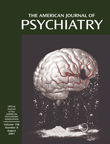Reading this book is a mixed experience. On the positive side, it provokes thought about a number of critical and indeed profound issues about the relationship between psychiatry and religion. How should a clinician respond to the patient with schizophrenia who, on recovery from a psychotic episode with prominent religious delusions, wishes to explore the personal meaning of these religious experiences? Or the manic patient who wants to talk about the ecstasy brought on by her belief in her divinity? As this book suggests, surely the response must be better than, “Those were sick thoughts and best to dwell on current issues. Are you having any side effects from your medication?”
On the negative side, this is not a scholarly work. It is journalistic in tone and style and not infrequently made me feel that I had stumbled inadvertently into the pop psychology section of my local bookstore. The psychopharmacology is little short of horrendous. We find that antidepressants “block serotonin receptor sites,” while “cocaine, like antipsychotics, blocks dopamine receptors.” After a superficial equation of psychosis and mysticism, we find the following conclusion:
Then dopamine may be the God chemical, the heavenly substance that breaks down the I-it walls and allows for the way of knowing that we call mystical. (p. 192)
The author, a journalist by trade, provides, in 13 chapters, a somewhat disjointed but sometimes engrossing journey through the current landscape of the “psychospiritual” movement. We meet a diverse range of characters, all of whom are responding in one way or another to the perceived lack of sensitivity to religious feelings and aspirations in “mainline” psychiatry and psychology. Clinical stories are freely sprinkled through the text and are often quite helpful in grasping the more human aspect of the issues presented. References are few.
The reader confronts repeatedly the question of the boundary between acceptable and unacceptable religious dialogue between a clinician and a patient. Is it OK to quote a biblical passage that might ease the guilt of a depressed, highly self-derogatory patient who says her illness is a punishment from God? What about praying with a patient or prescribing prayer?
In the antagonism between psychiatry and religion, this book suggests that our patients may have been the losers. We hear of a religious Catholic woman who developed a depression after having an abortion and reports that after months of psychiatric care no one ever asked her about how her religious beliefs might have entered into her depression. We meet a deeply disturbed psychotic man who appeared to have found some greater peace of mind by discussing his religious preoccupations—that no one else in the mental health system would talk to him about—in group therapy with an ex-nun who has dedicated herself to trying nondirectively and respectfully to meet the spiritual needs of the chronically mentally ill.
We also meet some of the more disturbing practices at the religion-mental health interface, such as the romantic but dangerous idea that “psychotic states have a ‘transformational power’ if they are ridden out rather than aborted” or the view that no meaningful distinction can be made between mysticism and psychosis. We meet self-described Christian counselors who claim that psychotherapy and religion have a similar goal and see encouraging patients to accept Christ into their life as an appropriate therapeutic technique.
By standard criteria, this is not an excellent book and probably not even a good one. However, for a psychiatric clinician interested in the interface with religion, I predict that reading this will, in turn, be stimulating, worrying, thought-provoking, embarrassing, and infuriating. Two things were clearer to me when I finished this book than when I started. First, there are many aspects of the religion-psychiatry interface that are interesting and ultimately important to our profession. Second, there are deep difficulties and dangers in this relationship. It is too easy to move from sympathy to prescription, from respecting psychotic religious experiences to romanticizing them. Religious experiences should be important to us because they are important to our patients. We should avoid the extremes of dismissal and advocacy, striving instead for respectful therapeutic neutrality.

